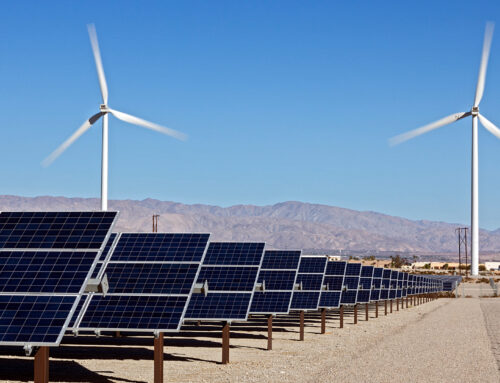Nvidia stock extends gains as Saudi Arabia set to spend billions on AI chips, US moves to
May 14, 2025
Nvidia (NVDA) stock jumped 3.6% early Wednesday, extending its gain from the prior day, when shares rose nearly 6% and the AI chipmaker’s market cap surpassed $3 trillion for the first time since February.
The gains come as US chipmakers, including Nvidia, announced billions of dollars’ worth of deals with Saudi Arabia during an investment forum attended by President Trump on Tuesday.
Nvidia said it will supply several hundred thousand of its AI chips to Saudi Arabia’s AI venture Humain over the next five years, beginning with the sale of one of its latest Grace Blackwell AI supercomputers using 18,000 of its advanced GB300 chips. Humain is a new AI venture owned by Saudi Arabia’s $925 billion Public Investment Fund and chaired by Crown Prince Mohammed bin Salman. It was launched just a day ahead of Trump’s visit to the country.
Bank of America (BAC) analysts estimated the total value of the deal at $7 billion and raised its price target on Nvidia stock to $160 from $150 in a note to investors Wednesday morning.
Read more about Nvidia’s stock moves and today’s market action.
Also bolstering Nvidia shares, a report from Bloomberg on Tuesday indicated the Trump administration may cut a deal to allow the United Arab Emirates to purchase “more than a million” of Nvidia’s AI chips.
Fellow US chipmakers Advanced Micro Devices (AMD) and Qualcomm (QCOM) also unveiled deals to supply chips to Humain for its ambitious AI data center plans over the coming years. AMD’s deal was valued at $10 billion.
Bernstein analyst Stacy Rasgon said the news is a good sign of demand for AI hardware.
“For investors worried about AI capex sustainability, we now have another deep pocketed customer willing and capable to spend large amounts of money on a clearly strategic push as Saudi Arabia attempts to position itself as a regional and global AI hub,” he wrote in a note to investors early Wednesday.
“While we shall see how much of the announced programs actually come to pass, Tuesday’s actions have the potential to act as support against fears of a capex peak.”
Investors have scrutinized whether US Big Tech companies can sustain unprecedented levels of spending on AI infrastructure while companies are still figuring out how to fully monetize their AI products.
Separately, Super Micro Computer (SMCI), a server maker that uses Nvidia’s AI chips and server designs, announced a $20 billion deal with Saudi Arabian data center company DataVolt. That stock, which closely tracks with Nvidia’s moves, rose 16% on Tuesday and another 18% in early trading Wednesday.
The news came as Saudi Arabia and President Trump touted a $600 billion deal for the kingdom and companies based there to purchase US technology, weapons, and infrastructure. But so far, the investments unveiled Tuesday total much less than $600 billion.
Nvidia stock’s jump on Wednesday helped inch shares closer toward positive territory for 2025 after a rocky several months. Shares were down 3% year to date at Tuesday’s close.
The AI chipmaker’s Saudi Arabia deal helped brighten Wall Street’s outlook for the company’s sales abroad just after Trump banned exports of its chips for China. However, his administration looked to ease Biden-era restrictions on Nvidia’s exports to the rest of the world (including the Middle East).
The Department of Commerce on Tuesday announced that it had initiated the rescission of Biden’s so-called AI diffusion rule, which was meant to halt the smuggling of US AI chips, namely Nvidia’s, to China.
The department also said that “using Huawei Ascend chips anywhere in the world violates US export controls.” Huawei’s latest Ascend chips are reportedly competitive with Nvidia’s prior-generation Hopper chips.
Bernstein’s Rasgon said, “Huawei chips are not made in the US nor exported from there, and (purportedly at least) are manufactured without using US technology (so it is not clear how customers using them would be in violation of US export restrictions).”
“Nevertheless, such an interpretation of the rules would clearly make it more difficult for Huawei to sell Ascend chips to customers outside of China, as well as seemingly open up Chinese users of the parts to more of the US’s regulatory hammers,” he added. “This is probably a positive for NVDA and other US AI names, though it remains to be seen how China might respond.”
Laura Bratton is a reporter for Yahoo Finance. Follow her on Bluesky @laurabratton.bsky.social. Email her at laura.bratton@yahooinc.com.
Click here for the latest technology news that will impact the stock market
Read the latest financial and business news from Yahoo Finance
Terms and Privacy Policy
Search
RECENT PRESS RELEASES
Related Post


